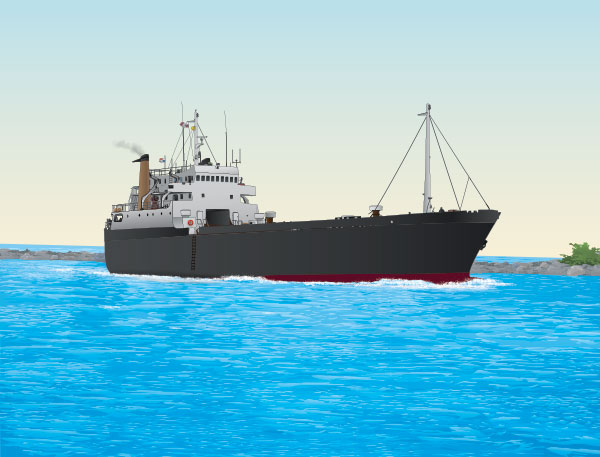Travel
Understanding Navigation Rules: When Exceptions Apply
Published
5 months agoon
By
Admin
Navigation rules are crucial guidelines designed to ensure safe and orderly movement on waterways. However, there are circumstances where these rules may be overlooked or exceptions may apply. It’s essential to understand these exceptions to navigate effectively and responsibly. This article explores various scenarios where navigation rules might be overlooked or relaxed.
- Emergency Situations: In emergencies such as distress situations, navigation rules can be overlooked to prioritize saving lives and preventing further harm. Vessels may deviate from standard procedures to provide assistance or navigate to safety promptly. However, this should be done cautiously to minimize risks to oneself and others.
- Navigating in Restricted Waters: Certain water bodies may have specific rules or regulations that differ from general navigation rules. In such cases, mariners must adhere to the guidelines outlined for those particular areas. These restrictions could include speed limits, no-wake zones, or designated lanes, which may override conventional navigation rules.
- Military Operations: During military operations or exercises, civilian vessels may need to navigate in areas temporarily controlled by the military. In such instances, navigation rules may be overlooked or altered to accommodate military activities. It’s crucial for civilian operators to follow instructions provided by authorities and be aware of temporary restrictions.
- Search and Rescue Operations: When conducting search and rescue operations, vessels involved may need to deviate from standard navigation rules to cover a wider area efficiently. This could involve erratic movements, rapid changes in direction, or prolonged periods of loitering in a specific area, prioritizing the search for missing persons or distressed vessels.
- Navigational Hazards: In the presence of navigational hazards such as reefs, shoals, or wreckage, vessels may need to depart from regular routes or alter their course significantly. Safety becomes the primary concern in such situations, and vessels may temporarily overlook navigation rules to avoid imminent danger or damage to the vessel.
- Inclement Weather: Severe weather conditions like storms, hurricanes, or dense fog can necessitate deviations from standard navigation rules. Vessels may need to reduce speed, change course, or even seek shelter until conditions improve. Safety takes precedence over adherence to regular navigation rules during adverse weather events.
- Pilotage Services: In areas where pilotage services are mandatory, vessels often rely on pilots to navigate safely through challenging waterways. Pilots are familiar with local conditions and may deviate from standard navigation rules to optimize passage through narrow channels, congested ports, or areas with strong currents.
- Navigating in Ice-infested Waters: In regions prone to ice formation, vessels may need to navigate through ice-infested waters. This could involve breaking through ice, following icebreaker escorts, or altering routes to avoid densely packed ice. In such circumstances, vessels may deviate from standard navigation rules while prioritizing ice navigation protocols.
- Exemption by Authorities: Competent authorities may grant exemptions or waivers from certain navigation rules under specific circumstances. These exemptions could be temporary or permanent and are typically issued to facilitate maritime operations, research activities, or other special purposes deemed necessary by the authorities.
- Cultural or Traditional Practices: In some regions, there are cultural or traditional practices related to navigation that may deviate from standard rules. These practices often have historical significance and are respected within their respective communities. Mariners navigating in such areas should be aware of and respect these cultural norms.
In conclusion, while navigation rules provide essential guidelines for safe and efficient maritime operations, there are instances where exceptions may apply. Whether due to emergencies, navigational hazards, or regulatory requirements, mariners must exercise sound judgment and prioritize safety above all else. By understanding when navigation rules can be overlooked or relaxed, seafarers can navigate effectively in diverse and challenging maritime environments.
You may like

The Fascinating World of Cats: An In-depth Exploration

How to Find the Right Surgical Technician Certification Online

Need to know the Sillim Pool Salon reservation

Get Free Company Directory Listings and sites for free advertising on Workerty.

Top 25 College Football Poll for 2024

Macron Keeps France’s Prime Minister in Place for ‘Stability of the Country’ After Chaotic Election

Brandon Marsh Wife:Know All About Her

Rena Monrovia: When You Transport Something by Car

Halo: Combat Evolved (2003) – Game Icons and Banners

Old Navy | Navyist Rewards Mastercard

How can online food delivery sales increase and attract the maximum number of customers in 2023?

MEP BIM: Revolutionizing Building Infrastructure Design

Revolutionizing Industries with ChatGPT

Virtual Reality Rental: A Futuristic Experience

Unlocking the Potential of cryptonewzhub.com Internet

Negin Behazin vs Dignity Health: Comprehensive Comparison

Resolving the Israeli-Palestinian Conflict: A Comprehensive Analysis

Skillful Passion: Wisconsin’s Dominant Volleyball Team

iPhone 14 Pro Max: Unveiling the Next Level Innovation

Unraveling the Mystery: Robert Card’s Tragic Passing

The Fascinating World of Cats: An In-depth Exploration

How to Find the Right Surgical Technician Certification Online

Need to know the Sillim Pool Salon reservation

Get Free Company Directory Listings and sites for free advertising on Workerty.

Top 25 College Football Poll for 2024

Macron Keeps France’s Prime Minister in Place for ‘Stability of the Country’ After Chaotic Election

Brandon Marsh Wife:Know All About Her

Rena Monrovia: When You Transport Something by Car

Halo: Combat Evolved (2003) – Game Icons and Banners

